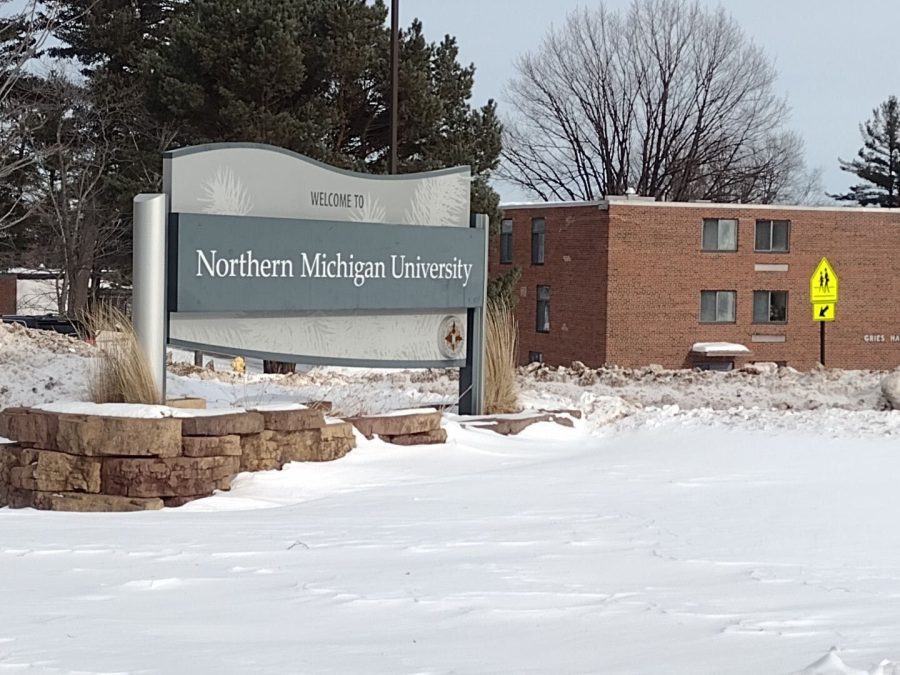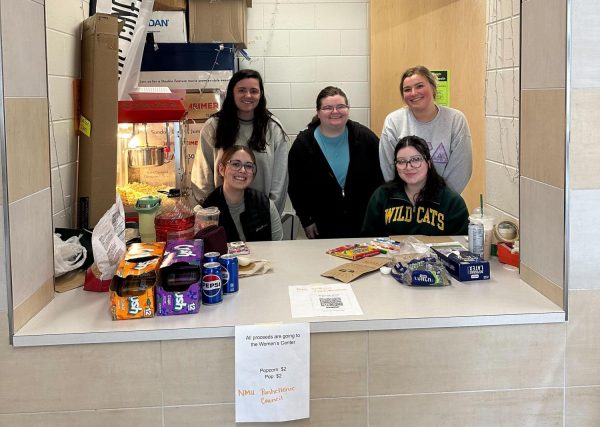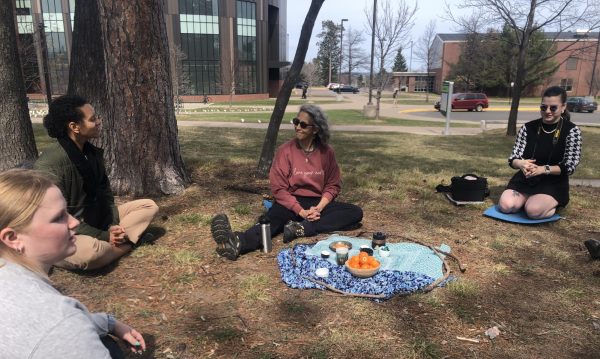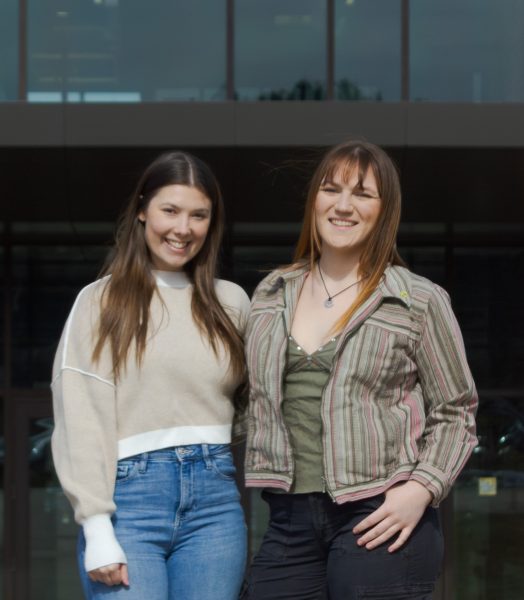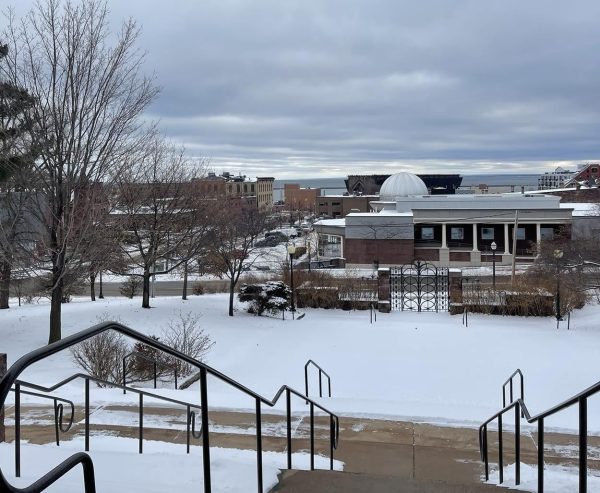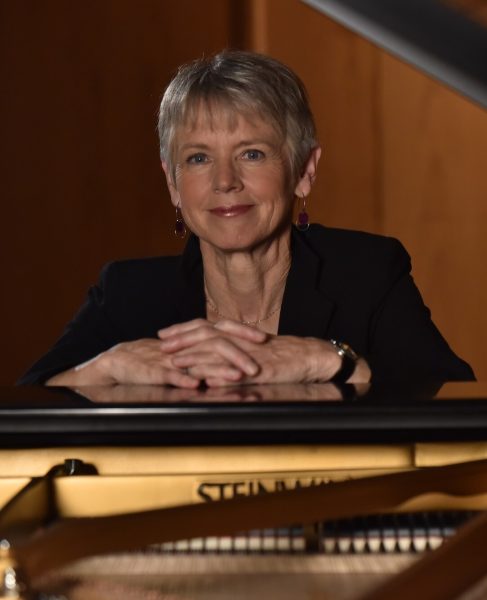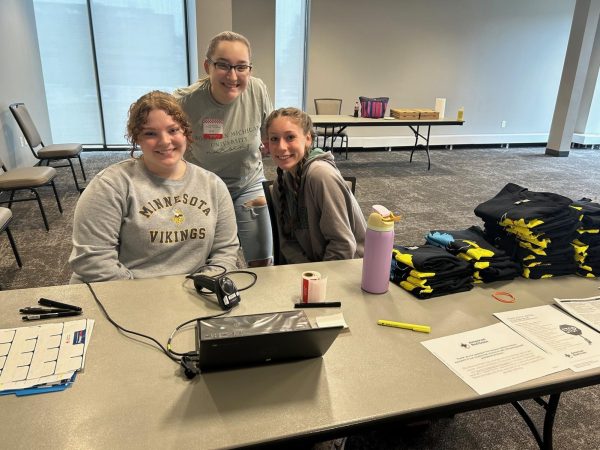Task force created in hopes of opening early childhood education center
COMMUNICATION—The NMU task force is working together to form an education center for the Marquette area in response to a heavy need for childcare.
February 5, 2022
NMU community members created a task force last fall to open an early childhood education center on campus to serve the university population and address larger problems of childcare and employee shortages in the Upper Peninsula.
The task force is a collaborative effort of roughly 30 residents of Marquette and Alger Counties, including members of the NMU campus population. The co-organizers of this team are Rachel May, associate English professor, and Shilpa Jhobalia, community organizer of the task force.
“We just wanted to start a task force to get some dialogue going and some movement because it’s such a big problem, child care right now,” Jhobalia said.
One of the team’s community partners is the Great Start Collaborative at the Marquette-Alger Regional Educational Service Agency. Last year, Great Start to Quality and MARESA surveyed over 1,300 participants and found as of December that 71% of parents in Marquette and Alger Counties were not able to find sufficient childcare, May said.
“We know that there’s a dire need for [childcare] in the area, and that the student population would be well served by this. So that’s why we initially launched all of this,” May said.
By bringing an early childhood education center to NMU, the task force hopes to address the issue of a lack of childcare affecting not only Marquette and the U.P. but also the entire country, Jhobalia said.
“[The childcare crisis] is actually a huge problem across the whole country, so it’s not something that only we’re facing,” Jhobalia said. “But, I think in the U.P., because we’re rural and remote, it’s affecting us a little harder and deeper in some ways than the rest of the country.”
Currently childcare centers in the area are unable to meet the needs of parents, preventing some of the workforce from going back to work, Jhobalia said.
“Part of the reason our workforce is suffering is because workers don’t have reliable or available childcare to put their children in,” Jhobalia said.
Along with May and Jhobalia, the task force includes several members of the university community who serve as directors of early childhood education centers around the area. This includes Lyndsay Carey from the Great Start Readiness Program at MARESA and Corey Holcomb from the Head Start Program at the Community Action Alger-Marquette, Jhobalia said.
“[Carey and Holcomb] are great because they understand Northern,” Jhobalia said. “They’ve taught in the education department, and they also run these great programs.”
The task force also consists of community members including Maria Loukusa, the parent liaison for the Great Start Collaborative at MARESA, and Sarah Lucas, the CEO of the Lake Superior Community Partnership, whose main concern is employment and economic development, May said.
“We’re also hoping to find some solutions to the staffing crisis by working in collaboration with these community partners and with early childhood education professors on campus who can help us provide great well-trained staff,” May said.
The early childhood care center would also serve as an interdisciplinary learning lab for NMU students, such as English majors who can teach literacy skills, and for elementary education majors to get practical experience working with children, May said.
“The students who are trained on campus will be able to go through the center to do their training,” May said. “Then, they could either stay on as employees at that center or go on to work in any of the centers across the U.P.”
Jhobalia’s husband, Ryan Stock, assistant professor in the Earth, Environmental and Geographical Sciences department, suggested that the staff in the education center could also teach the children about farming and gardening, May said.
“Stock proposed making this an environmentally focused childcare center, which we thought was an amazing idea,” May said. “We talked to them about working with indoor agriculture to build an indoor garden.”
The indoor garden will be developed by the Indoor Agriculture and Construction programs and have the potential for food to table options at dining on campus, May said.
Once the grants the task force has applied to are either accepted or denied, the team plans to start looking for available classroom spaces as well as facilities to construct the education center on campus, said May.
“We don’t know exactly what the timeline will be, but we know that the sooner the better,” May said. “We know it’s a crisis and there’s a really, really strong need.”





















